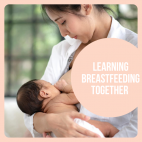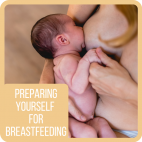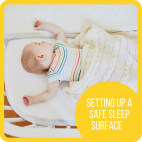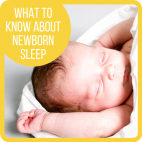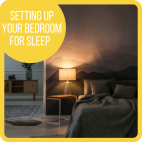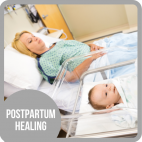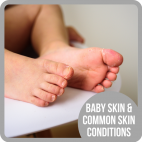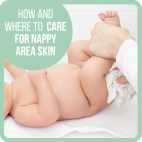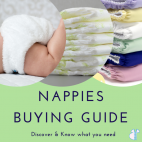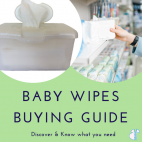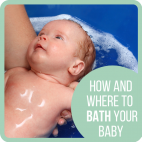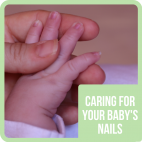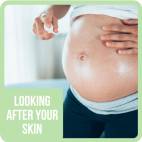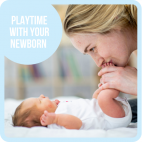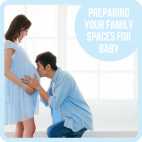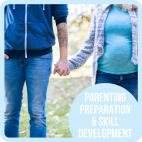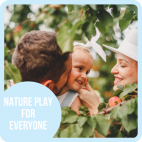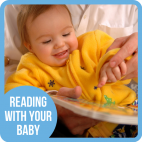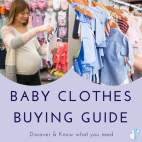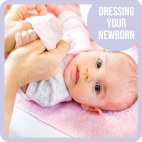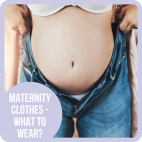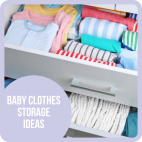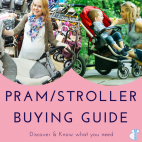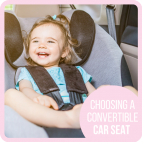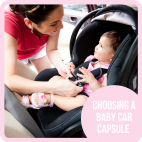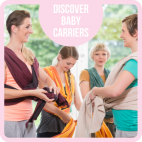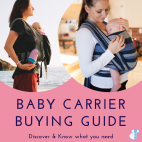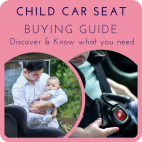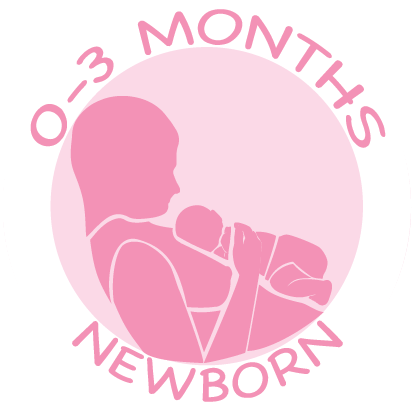
Your newborn (the fourth trimester or 'golden month')
Congratulations on becoming a newborn parent!
The birth of your first baby is also a process of giving birth to yourself as a mother (& father) where you will be forever changed as you embrace your new identity.
Your parenting life will certainly have ups and downs, and you will learn more about yourself and your partner than at any other time in your lives. This is a huge adjustment period where you learn new skills to develop confidence as a parent and emotionally adjust to parenting demands. Be patient with yourself, understand you are learning and accept that perfect is not the goal, rather you are doing the best you can.
For ideas on what essential items you will need for this stage, check out our Top Essentials Guide for 0-3 months. This is also a great place to start if you are deciding on what to add to your BabyPeg page when you become a member.
The first 3 months are considered the 4th trimester as your baby learns about their body and life outside the womb. You were once a newborn as they are now, having spent your entire life floating in a warm environment with rhythmic movement rocking you around, the rhythmic sounds of a heartbeat and bodily sounds and food delivered straight to your belly. Now after birthing into the outside world, they are adjusting to the feeling of breathing, gravity, the cold, clothes, the light of day followed by the darkness of nighttime, feeding, digesting and eliminating. While you might not consciously remember being their size, it can feel like an innate knowing of how they must be feeling, which can help you parent from the heart with empathy. With this empathy, you can begin to get to know your baby, anticipate their need to be close to the comfort of your body, meet their needs with love and understanding and acknowledge how well your baby is doing.
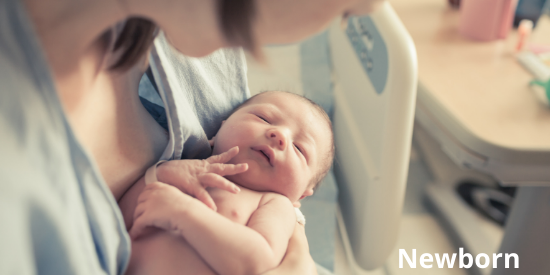
To you, it seems like a never-ending cycle of feeding (then spewing), sleeping (and fussing with some alert time) and pooping (and changing soiled nappies and clothing). You'll have plenty of time and practice to get confident in the basics of baby care. Their other basic needs which you can enjoy as much as them, are lots of touch, movement, and interaction. These activities grow your bond with your baby (including boosting your oxytocin 'love hormone' levels) as you get to know them and watch and listen carefully to learn their body language and vocal communications.
It is also a time where unexplained crying peaks, also known as 'colic'. It can be difficult and heartbreaking to listen to your baby cry and be there while they are upset. Learning and trying soothing methods gives you different and important tools you can use to support your baby. You can explore soothing methods at the purplecrying.info website or consult Pinky McKay's 100 Ways to Calm the Crying book.
It's a time to balance caring for your baby and caring for yourself, ideally by enlisting the help of your own support people to take care of everything else while you get to know your baby. It is a traditional time of rest, keeping warm and nourishing foods to prevent deficiencies. Your mental health can also benefit from socialising with other parents with babies the same age such as in a mother's group, getting out into nature in the sun and grounding your body, and getting moving (even if it's just going for a walk).
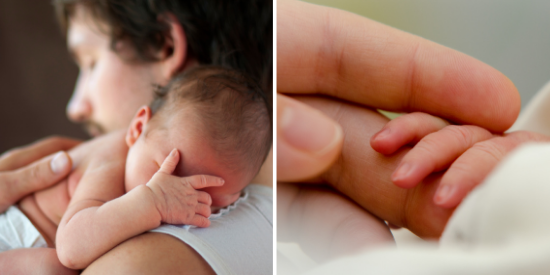
Hours can be passed just staring at your baby, admiring their little toenails, fingernails and feeling their baby soft skin. It will feel like you have done nothing all day, yet have never stopped. Try to stop. If they are sleeping, put down the washing and take a nap too. Allow yourself to fully experience this time with your baby, because this stage is only temporary and like all stages, does pass.
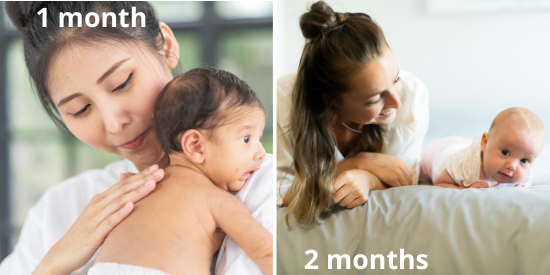
By 3 months, your baby will be much more alert, having longer periods of active alert time between naps, be much more interactive with smiling and laughing, be stronger at holding their head up against gravity, and have grown their brain to twice the size of their brain at birth. Celebrate with them every achievement however little and delight in how clever they are, capture it to look back on later while making sure you enjoy the moment before it passes.
Your body has just gone through 9 months of prioritising nutrients to your baby via the placenta, gone through the marathon of birth, is working on establishing a milk supply, healing any birth injuries and reconfiguring your uterus and body shape back to pre-pregnancy status. All this bodily activity needs nourishing foods and nutrients and respectful treatment. Be amazed at what your body has done and give it the time it needs to adjust once more.
Breastfeeding is a co-occupation that requires skill - meaning it is something you do with your baby and you both have to learn over time and with practice. The biggest learning curve with breastfeeding is with your first baby and there are a number of factors that contribute to success or failure in the breastfeeding journey.
With each breastfeed, you are both learning how to work together and becoming competent. The time that you are breastfeeding is a time for giving nourishment, comfort, calming, and a full sensory experience (including touch, taste, smell, temperature regulation, breath, and heart rate synchronisation). At the same time that you are developing competence as a breastfeeding mother, your baby is developing competence in all the skills involved with breastfeeding. You grow together.
Your baby needs to feed regularly and frequently in order to support their rapid growth and development needs. As your baby grows, the frequency of feeds tends to stretch out from every hour to every 3 hours to every 3-4 hours for an older baby. Your baby will go through growth spurts where they will want to feed more often and at other times be able to go for longer between feeds. Most breastfeeding mothers have the worry that they are not producing enough milk, but this is usually not the case and a matter of watching your baby for signs of hydration such as wet nappies. They most important factor in a successful breastfeeding relationship is having the right support at the right time. Support can be sought from partners, other mothers (including your own mother/grandmother/sister/cousins etc), breastfeeding associations and International Board Certified Lactation Consultants (IBCLC). There are also products which can be found which help with eating the right foods or supplements to boost milk supply as well as to have products which can help to manage leaking and blocked milk ducts to avoid mastitis. Check out Milky Goodness to explore breastfeeding support products.
Recognising your baby's early hunger cues such as how they move their mouth and head will help you to meet their needs before they escalate to late hunger cues. Tuning into your baby will prevent missing the early cues and understanding that your baby's hunger can change from one day to the next depending on whether they are going through a growth spurt will also help you to be able to meet their needs. The early hunger cues of sucking noises/movements of the mouth and turning towards the breast when held can quickly escalate into late hunger cues where the movements are more urgent and fussing sounds turn to crying. The Raising Children Network has a great video showing you exactly what to look for in your baby, that is worth checking out:
Baby cues hungry from Raising Children Network on Vimeo.
Understanding that your baby's sleep is very different from yours is the first valuable thing to know. There are some things the same, but many are different. For example, in the first months, about 50% of babies' sleep is in REM sleep, a light sleep state where their brains are building, developing, and consolidating. Overall sleep is important, but the REM sleep is the most important for your baby. Your way of sleeping has evolved over your lifetime; your body is older and is no longer growing. In contrast, your baby has just been introduced to light, gravity, the cold, how to stretch their limbs out, breathe, eat, poo and wee. Everything is new to them, and they need you to help them grow and develop, feel loved and comforted.
There is a saying, '40 days for 40 years benefit'. There is no doubt about the importance of post-birth rest and recovery. If you have someone who looks after your needs during the first month after birth, you can get on with your highest priority job, falling in love and learning to feed & care for your baby. If you don't have a partner, friend or family member right for this job, another option is to employ a postnatal doula to be your person.
As a rough guide, babies between 0 to 3 months sleep during the day 6-7 hours (45 mins - 105 mins awake time between naps) and during the night, an average of 8 hours (maximum 4 hours between feeds). In total, half of babies will average 13-16 hours (with a range of between 10 and 19 hours). The averages serve to give you an idea of what the awake/sleep rhythms of your baby's day might be. It might seem like a lot of sleep, but your sleep needs will also have increased, and you might appreciate following your baby's lead and forget everything you think you need to do and nap too.
All babies display some degree of tired cues to tell you when they are getting tired and ready to sleep. Learning to recognise the early cues is one key to minimising the late, tired signs, including crying. Other keys can be found by trying different things but being responsive and following your baby's lead to learn how to meet their needs. Try to hold space for your baby with a calming energy, and then through this connection, your baby can tune into a calm state. This takes practice, being able to go with the flow, accept that your baby needs you now, but it won't last forever.
Check out our related topics to find out more...
The health of the whole family matters when it comes to the fourth trimester period. There is a lot of adjustment and healing going on for everyone during this period.
For mum, you have the physical healing to do from the birth, be mentally processing the birth experience, and are trying to meet the demands of caring for and feeding your baby. Now is your postpartum healing time which requires a lot from you. Any support you can get during this time will be valuable to holding the balance and supporting your healing.
For Dad (or partners), this is a huge transition into parenthood, whilst still wanting to support your partner and being sensitive to their needs.
For your baby, their birth has thrust them into the outside world where they now have to breathe the air, feed, digest, poo & wee, & feel the air and different sensations on their skin - it's all so exhausting! The fourth trimester is a time of rapid development, where your baby emerges with many primitive reflexes (causing them to move in automatic ways in response to stimuli), poor vision, and are dependent on their caregivers to keep them comfortable, soothed, and regulated. They are able to communicate with their body language/movements and various pitched sounds - the challenge for parents is to learn their language whilst teaching them yours. By the end of their 2nd month, they will have more control of their head to hold it steady when held, can start to open their hands, bat at objects and develop some social skills such as smiling, cooing, and turining towards voices. As they are learning to integrate their reflexes, they are learning to integrate their sensory systems - they learn about the world through interaction and engagement with people and the environment including physically, socially and emotionally. Newborns are born with nearly twice as many neurons as adults - their entire brain more than doubles in the first 90 days! It is incredible what babies can do, and you get to help them through this unique time.
When illness or injury does occur, it is helpful to have some essential items on hand. Having a basic first aid kit in your home and car is a good idea, so you have access to what you need when you need it. It is also a good idea to have access to first aid information such as in the free app iFirstAid and helplines such as Health Direct or Pregnancy Birth & Baby. You may want to have basic medication supplies such as pain medication, stool softeners for constipation, nappy rash cream, antifungal cream, antibacterial ointment, tweezers, saline drops, nasal aspirator, thermometer, cold compress, & a heat pad.
Looking after your baby's hygiene needs can feel like a full-time job - there's bathing, general skincare, nappies, wipes, nail trimming, & scalp care.
One major choice you have is how to manage your baby's bottom - your options include any combination of disposable nappies, reusable nappies, disposable wipes, reusable wipes, and elimination communication. What you choose will depend on many factors and will be personal to you. To make a choice, you need to understand each's pros and cons and get yourself set up for success. If you are considering using cloth nappies, there will be a learning curve as you learn about cleaning cloth nappies from websites and Facebook Groups and start to build up your stash.
Whilst you are working out what works for your baby's hygiene, you also have to manage your own. The pre-baby blissful time you spent looking after yourself quickly becomes a distant memory that you reminisce on fondly. There is a definite disconnect in the post-birth recovery period, where your body needs a lot of care, respect and attention, yet there seems to so little spare time for that purpose.
With your baby wanting to be close to you, it can be hard to break away even to take a shower. The reality is that personal hygiene, as a parent, favours the quickest, most effective method.
The age-old question is, how DO you look after your self-care needs while meeting your baby's needs? It's a constant challenge, but it does get easier as your baby gets older. Having a support person (or two) helps too. Enlist the help of others where you can to hold the baby or invest in an easy to move around bouncer to sit your baby in so that you can keep them happy while you get your things done.
If you are wondering what you should do with your baby, what toys they could benefit from and what they can do developmentally in the first 3 months, check out our Play with Your Newborn topic and the CanDoKiddo website.
Once you leave the hospital, you will be adjusting to life at home with a baby. All your preparation work will pay off now so that you can just enjoy your time with your baby. If you receive gifts for your baby, make sure to update your BabyPegged list to avoid getting double ups if anyone wants to buy you anything and to help you figure out what you still need. If you have everything you need, why not create a pegged item for your collection of books. List the books you have and then add new books as you go. Reading to your baby is a rewarding and relaxing activity and any books you receive can be enjoyed many times over for many years to come. If you're after ideas on what books to buy, check out our blog on Award-Winning Australian Authors & Books. Thinking ahead and displaying books at a low height in your baby’s room or play area and rotating books can help you with a visual reminder to read to your baby and keep those books within easy reach. As your baby grows and becomes mobile, they will love being able to see and access the books anytime they want to ‘read’.
Hopefully you will have some support system such as a partner or mother figure in your life who can help you get the rest you need as you recover from birthing your baby. Now is the time to work as a parenting team and accept help when it is offered in a way that you are comfortable with. It's time to grow your village by getting amongst other mothers of similar aged babies so you can experience this stage together.
When you are pregnant, it can be so exciting picking out cute tiny clothes as you prepare for your baby to arrive. Seeing those tiny socks and outfits make everything seem real, that your baby will be shortly fitting into those impossibly tiny clothes.
Depending on who you ask, you will get various advice on how many and types of clothes you should have ready for when your baby is born. The essential type of clothing for newborns is definitely the onesie or jumpsuit. These are great to use over the first year of your baby's life as they cover the nappy, keep your baby warm, and their clothing won't ride up or crease when they wriggle around, or you pick them up. Onesies are cute any time of day and come in any combination of long sleeves (with or without cuff option), short sleeves, no sleeves, long legs with feet enclosed, footless long legs (with or without cuff option), short legs or no leg options. What options you choose will depend on the inside and outside temperature throughout the day and night where you live (and personal preference). If it is cold, you can layer them up, such as putting a singlet style onesie underneath a long onesie. Instead of a bulky jumper or jacket, you might want to use a blanket, wrap, sleeping bag, or a babywearing coat.
You never know how big your baby will be at birth, so it is worth having a range of sizes on hand, then you can always buy more as you need them. The advantage of having a stock ahead of time is that you can have the clothes washed and ready to go for when you need them. It is always recommended to wash their clothes before the first wear just to be on the safe side.
Small babies will fit into a 00000, but most average-sized babies will be a 0000 at birth (with some room to grow). Having the clothing a little too big is no big deal, but it's a problem when the clothes are too small. Tight clothing can press and rub on the delicate skin causing red marks or affect blood flow. Restrictive clothing will also stop them from moving, which can affect their development. Room to grow is the way to go.
For you, wearing maternity style clothes will continue to be comfortable and don't be tempted to put pressure on yourself to fit back into your pre-pregnancy clothes straight away - you have other things to worry about at the moment! A wide range of mainstream clothes tops and dresses can be fine for breastfeeding, such as cross-over tops, zippered tops, button tops, and tops loose enough to lift up. It can also be great to buy some clothes designed with breastfeeding and your post-pregnancy body in mind, such as from Soon Maternity, nursing & maternity bras from The Stork Nest, maternity range from Modibodi & Women's Clothing / Maternity Women's Clothing from eBay. Check out Etsy for a cuteness overload with their range of handmade, unique and vintage clothing.
Some of the biggest ticket items that you will buy for your baby are those that help you carry or drive your baby from place to place.
Doing your homework and really considering what is going to best suit your family's needs will pay off in the end. Products that fit your needs have the potential to make transporting your baby around your local area, shopping center, or when traveling, that much easier. You may even find yourself buying more than one type of pram, carrier, or car seat over the course of your pregnancy and early parenting years, so knowing what you are looking for will ultimately save you time and money.
There are many ways to transport your baby, so you need to be realistic with yourself about where you will want to be taking your baby, for how long and how often. Look for products that fit your lifestyle, what your body can manage to push/carry/lift, local environments, and where else you will need to take your baby. You can use any combination of the following at different times:
- Carrying (in arms/sling/carrier) - Carrying your baby has many benefits for both you and your baby. Using a long piece of fabric to wrap your baby onto your body is a traditional practice for good reason. A good carrier (or two) is one of the few absolutely essential parenting items you should invest in. There are lots of carrier and sling options available to give you a hands-free option for at home, out & about, and for an easy commute on public transport.
- Car - To travel in a car, you will need a child car seat. There are different types of car seats suitable for different ages. Consider the long-term when you are choosing a car seat - this could save you money in the long run.
- Pram or stroller - For your newborn, you may want to get a pram or pram/stroller combination which is has a bassinet lay flat style space for your baby to sleep in and face you. Pram/stroller combination seats can be converted when your baby outgrows the lay-flat seat, into a more upright seat. When it comes to looking around and choosing what is going to suit you, it all gets very confusing because there are so many brands and so many models available. It helps to have a clear idea of what you want and need before you can begin to narrow down your search.

